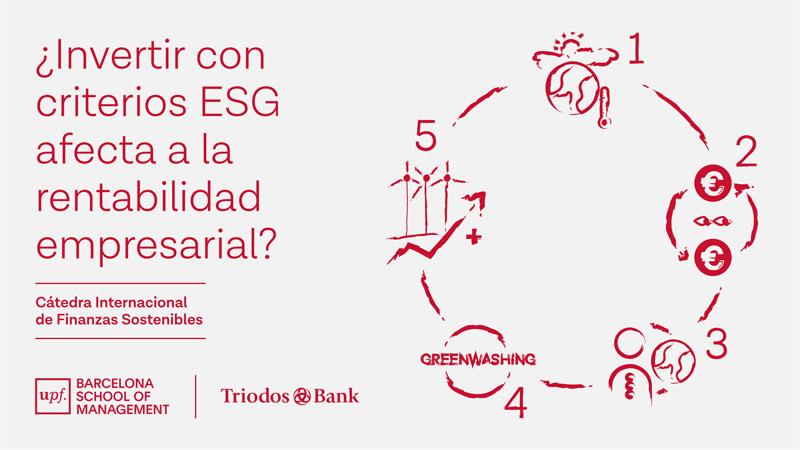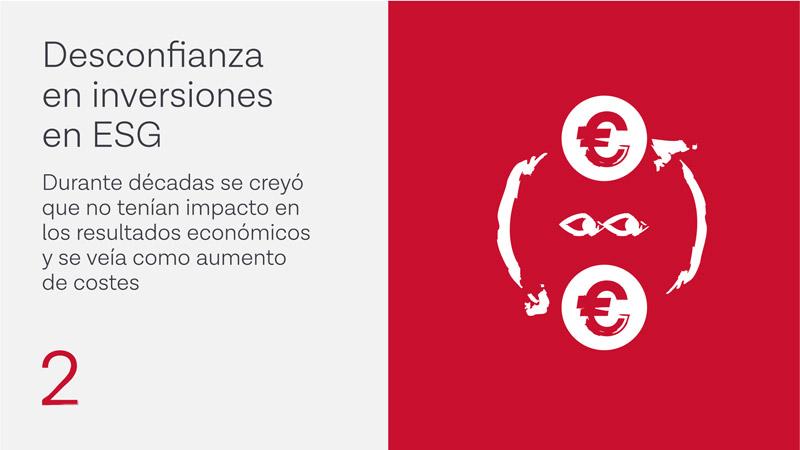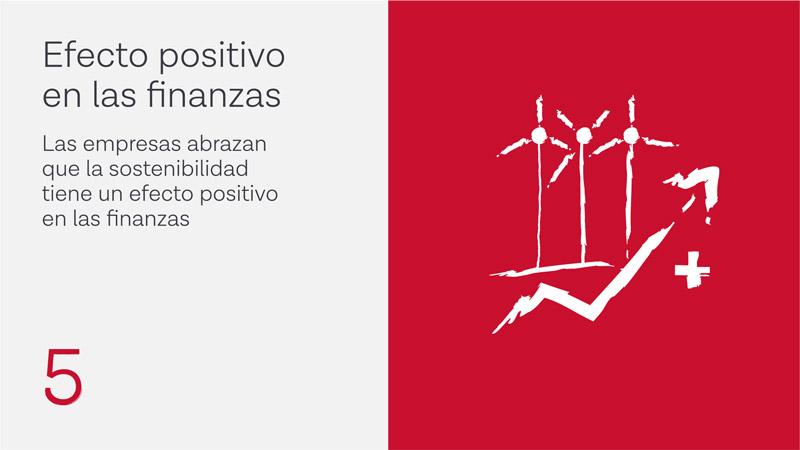Can you invest in sustainable finance without giving up on financial performance?
2 Marzo - 2023
Although it is true that phenomena such as responsible investment have a long history, in the last two decades it's development has accelerated. The current great emergence of sustainable finance is probably explained by a worsening of the deep imbalances in the global economic model. In fact, in recent years there has been growing concern about climate change, environmental pollution, greenhouse gas emissions, the increase in temperatures on the planet, the loss of biodiversity, corporate social responsibility, the increase in inequalities, the polarization of society and good governance in companies. An expression that groups all these new concepts would be Environmental, Social and Governance criteria or ESG criteria.
Now, how do these ESG criteria affect investment? Is there a consensus on whether taking them into account decreases financial performance or, on the contrary, has the capacity to increase it? At first viewed with distrust, as they were considered to have little impact on economic performance and were seen rather as a factor that increased costs, in recent years there has been a change in this tendency, and a large increase in awareness about sustainable investment.
The crux of the matter is that, in the face of this boom in sustainable finance, there is also an increase in so-called greenwashing. For participants in financial market this requires making an effort to discern those investments that are really sustainable from those that only constitute an image wash towards a sustainable positioning. In this regard, investment fund managers, private and institutional investors and regulators are concerned with verifying whether investing in “sustainable” investment funds (that is, investing in assets that follow ESG criteria) is – or is not – more profitable.
To better understand this greater consideration of ESG issues in the financial sector, at least in the case of Europe, we need to look at the regulatory context in which the continent finds itself: in fact, by approving new regulatory developments, regulators promote an orientation of the financial system towards sustainability. An example of this is the recent analysis that shows a paradigm shift in the use of sustainable investment strategy in Europe, where historically most assets were managed with exclusive and selective strategies based on rules; however, currently the most commonly used strategies are more sophisticated, integrating other aspects such as ESG criteria. This is happening due to the requirements incorporated in the recent European Union Regulation on disclosure of information relative to sustainable finance and the incorporation of sustainability risks in investments (GSIA, 2020).
All this shows that sustainable investment is a topic of growing interest today, and that it will probably also have enormous significance in the future, in the short and long term.
The study ¿Invertir con criterios ESG afecta a la rentabilidad empresarial? [Does investing with ESG criteria affect business profitability?] by Beatriz Cabello and Óscar Elvira, demonstrates that sustainable investment is an unstoppable trend in asset management, and that investment fund managers are immersed in the adaptation of their product offerings to the transparency regulation (SFDR), which came into force in March 2021, and which requires managers to specify whether or not they take sustainability into account when managing their assets. In short, it seeks to prove the commitment to respect for the environment, society and good corporate governance (ESG) of companies in which investments are made.
However, there is no clear and evident conclusion on a positive relationship between investment in ESG and profitability. It is true that more than half of the studies reflect an improvement in profitability in companies that invest in ESG, because they reduce the risk in investments and generate additional investment value, since a well-managed and responsible company that cares about its employees, its customers and the environment has a better chance of outperforming its competitors.
However, other studies claim that there is a negative relationship, and still others conclude that there is no relationship between ESG investment and profitability. Specifically, of the literature review carried out on 42 studies that have analysed whether sustainability has any effect on profitability, the majority, 59%, say that the effect is positive, but 27% indicate that sustainability has no effect on profitability, and 14% consider that the effect is negative.
In relation to the time horizon, all the studies analysed conclude that sustainable finance is more profitable in the long term and has a lower capital cost, due to the positive reaction of the markets to commitments, CSR policies and long-term strategies.
Finally, the study looks at the behaviour of “green assets”, whether stocks or bonds, in critical scenarios, such as the 2008–2009 financial crisis or the recent crisis triggered by COVID-19, and shows that companies with high ESG ratings exhibit better behaviour in the stock markets. The studies show a certain positive correlation between ESG investment and low volatility, so that at those times when the markets fall these stocks do not suffer so much, and at times of market growth, the companies with the best ESG rating show more contained rises.
In summary, everything seems to indicate that investments with ESG criteria are generally profitable (specifically, 59% of the studies analysed affirm that the effect is positive), but it also must not be forgotten that for 27% sustainability does not have an effect on profitability, and 14% consider the effect to be negative. So while sustainable investing seems to be an unstoppable trend, there is still a long way to go.





